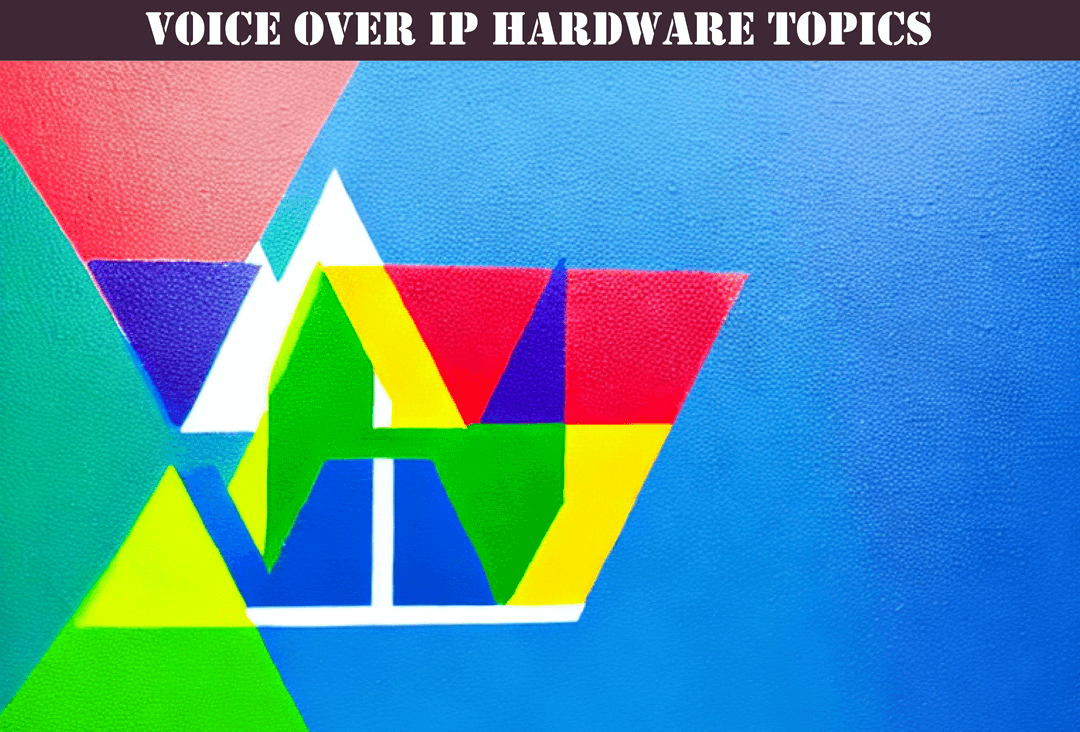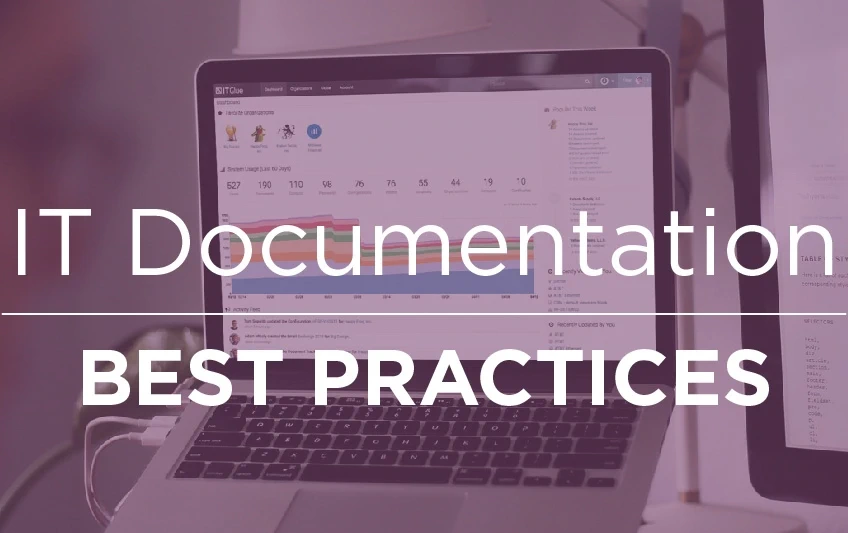Overview Of Voice Over IP Hardware 2025

Voice over IP (VoIP) is a technology that enables the transmission of voice and multimedia over the internet protocol (IP) network. VoIP has become increasingly popular in recent years due to its cost-effectiveness, flexibility, and scalability compared to traditional telephony systems. The technology has revolutionized the way businesses communicate, reducing the costs associated with long-distance calling and enabling remote collaboration.
VoIP hardware refers to the physical devices and equipment required to make VoIP communication possible. These devices include IP phones, analog telephone adapters (ATA), VoIP gateways, session border controllers (SBC), and IP PBX. Each of these components plays a critical role in facilitating VoIP communication.

1 Hour Consult $250
IT Glue Based Documentation
Concentrated 1 hour session of MSP documentation wisdom.
Count Me InIn North America, VoIP has gained widespread adoption among businesses of all sizes due to its numerous advantages over traditional telephony. Small and medium-sized businesses (SMBs) in particular have been quick to embrace VoIP, as it allows them to access enterprise-level communication features without having to invest heavily in hardware and infrastructure.
One of the primary advantages of VoIP hardware is cost-effectiveness. Traditional telephony systems require businesses to purchase expensive hardware and pay high monthly fees for long-distance calling. In contrast, VoIP hardware is relatively inexpensive, and businesses can make calls over the internet, which is significantly cheaper than using traditional telephone lines.
Another advantage of VoIP hardware is scalability. With traditional telephony systems, adding new phone lines or expanding the network can be costly and time-consuming. In contrast, VoIP hardware is easy to scale, and businesses can quickly add or remove phone lines as needed.
VoIP hardware also offers improved call quality compared to traditional telephony systems. This is due to the use of high-quality codecs and advanced voice processing technologies that eliminate background noise and ensure crystal-clear audio.
Finally, VoIP hardware can be integrated with other communication technologies such as email, instant messaging, and video conferencing. This integration enables businesses to streamline their communication systems and improve productivity by providing employees with a range of tools to communicate effectively.
In the following sections, we will explore the basics of VoIP hardware, including its components, differences with traditional telephony systems, and advantages of using VoIP hardware. By the end of this essay, you will have a comprehensive understanding of the fundamentals of VoIP hardware and its importance in today's communication systems.
VoIP Hardware: Components and Basics
VoIP hardware refers to the physical devices and equipment required to make VoIP communication possible. In this section, we will explore the different components of VoIP hardware and their functionalities.
IP Phones
IP phones are devices that enable users to make VoIP calls over the internet. These phones look and function like traditional telephones, but instead of connecting to a telephone line, they connect to the internet through an Ethernet port.
One of the benefits of using IP phones is that they offer advanced features such as call forwarding, call transfer, and call waiting. They also support high-quality codecs that ensure crystal-clear audio.
In the United States, IP phones have become increasingly popular among businesses of all sizes. According to a report by Zion Market Research, the VoIP market in North America is expected to reach USD 30.6 billion by 2025, driven by the growing adoption of IP phones among SMBs.
Analog Telephone Adapters (ATA)
Analog Telephone Adapters (ATA) are devices that enable users to connect traditional analog phones to a VoIP network. These devices convert the analog signals from the phone into digital signals that can be transmitted over the internet.
ATA devices are ideal for businesses that want to retain their existing analog phones but also want to take advantage of the cost savings and flexibility of VoIP.
VoIP Gateways
VoIP gateways are devices that enable users to connect their VoIP network to the traditional public switched telephone network (PSTN). These devices convert the digital signals from the VoIP network into analog signals that can be transmitted over the PSTN.
VoIP gateways are essential for businesses that want to take advantage of the cost savings and flexibility of VoIP while still maintaining the ability to make and receive calls from traditional telephone lines.
Session Border Controllers (SBC)
Session Border Controllers (SBC) are devices that enable businesses to secure their VoIP network and prevent unauthorized access. SBCs are responsible for routing VoIP traffic between different networks and enforcing security policies.
In the United States, SBCs have become increasingly important due to the growing number of cyber threats targeting VoIP networks. According to a report by the Federal Bureau of Investigation (FBI), cyber criminals are increasingly targeting VoIP networks to steal sensitive information and carry out fraudulent activities.

1 Hour Consult $250
IT Glue Based Documentation
Get On The AI Documentation Superhighway Today.
FASTPASS HEREIP PBX
An IP PBX (Private Branch Exchange) is a device that enables businesses to manage their VoIP network and provide advanced communication features such as auto-attendant, voicemail, and call routing.
IP PBXs are ideal for businesses that want to have full control over their VoIP network and want to provide advanced communication features to their employees. These devices are scalable and can be easily expanded as the business grows.
VoIP Hardware vs Traditional Telephony Hardware
VoIP hardware differs significantly from traditional telephony hardware. In this section, we will explore the differences between the two and the advantages of using VoIP hardware.
Cost-Effectiveness
One of the primary advantages of VoIP hardware is cost-effectiveness. Traditional telephony systems require businesses to purchase expensive hardware and pay high monthly fees for long-distance calling. In contrast, VoIP hardware is relatively inexpensive, and businesses can make calls over the internet, which is significantly cheaper than using traditional telephone lines.
According to a report by Tech.co, businesses that switch to VoIP can save up to 50% on their monthly phone bills. This cost savings can be particularly significant for SMBs, which may not have the budget to invest in expensive telephony hardware.
Scalability of VoIP Hardware
Scalability is another key advantage of VoIP hardware over traditional telephony hardware. With traditional telephony systems, adding more phone lines or expanding the system can be a complex and expensive process. In contrast, VoIP hardware is highly scalable and can be easily expanded to meet the needs of growing businesses.
Adding New Users
Adding new users to a VoIP network is a simple process. New users can be added to the network by simply adding new IP phones or Analog Telephone Adapters (ATAs) to the system. This allows businesses to quickly and easily expand their communication capabilities as their workforce grows.
Adding New Locations
VoIP hardware is also highly scalable when it comes to adding new locations. With traditional telephony systems, adding new locations typically requires the installation of new phone lines and hardware at each location. In contrast, VoIP hardware allows businesses to connect remote locations to the main network through a secure internet connection. This enables employees in different locations to communicate with each other seamlessly, regardless of their physical location.
Cloud-based VoIP
Cloud-based VoIP solutions are becoming increasingly popular among businesses of all sizes. Cloud-based VoIP solutions are highly scalable and can be easily expanded to meet the needs of growing businesses. Cloud-based VoIP solutions also offer other advantages such as automatic software updates, data backup and recovery, and reduced hardware maintenance costs.
In the United States, cloud-based VoIP solutions are particularly popular among SMBs, as they offer a cost-effective and scalable communication solution that can be easily integrated with other business software and applications.
Conclusion
In conclusion, Voice over Internet Protocol (VoIP) hardware is an innovative communication technology that offers businesses a cost-effective, scalable, and flexible communication solution. VoIP hardware offers several advantages over traditional telephony systems, including lower costs, higher quality audio, greater flexibility, and scalability.
VoIP hardware is particularly popular among small and medium-sized businesses (SMBs) due to its affordability and scalability. SMBs can benefit from using VoIP hardware by reducing communication costs and improving productivity through increased collaboration and communication.
With the growing adoption of VoIP technology worldwide, including in the United States, it is becoming increasingly important for businesses to understand the fundamentals and basics of VoIP hardware. By implementing VoIP hardware, businesses can gain a competitive edge in the market and improve their communication capabilities.
As technology continues to advance, it is likely that VoIP hardware will become even more sophisticated and user-friendly. Businesses should therefore keep up-to-date with the latest advancements in VoIP technology to ensure they are taking full advantage of the benefits offered by this innovative communication solution.
Overall, VoIP hardware is a reliable, cost-effective, and scalable communication solution that can help businesses of all sizes to improve their communication capabilities and increase their competitiveness in the market.
Frequently Asked Questions (FAQ)
What is VoIP hardware?
VoIP hardware refers to the physical equipment that is used to enable Voice over Internet Protocol (VoIP) communication. This hardware includes IP phones, Analog Telephone Adapters (ATAs), routers, switches, and other networking equipment.
How does VoIP hardware work?
VoIP hardware works by converting analog voice signals into digital data that can be transmitted over the internet. This data is then converted back into analog signals at the receiving end. This process enables voice communication to be transmitted over the internet, instead of through traditional telephone lines.
What are the advantages of using VoIP hardware?
VoIP hardware offers several advantages over traditional telephony systems, including lower costs, higher quality audio, greater flexibility, and scalability. VoIP hardware also allows for easy integration with other business software and applications, and can be used to connect remote locations through a secure internet connection.
Can VoIP hardware be used with a traditional phone line?
Yes, VoIP hardware can be used with a traditional phone line through the use of an Analog Telephone Adapter (ATA). The ATA allows analog phone signals to be converted into digital data that can be transmitted over the internet.
Is VoIP hardware reliable?
Yes, VoIP hardware is a reliable communication solution. However, the reliability of VoIP hardware can be affected by factors such as internet connection quality, network congestion, and power outages. It is important to ensure that your VoIP hardware is configured correctly and that your internet connection is stable and reliable.
Can VoIP hardware be used for video conferencing?
Yes, many VoIP hardware solutions offer video conferencing capabilities. This allows users to conduct face-to-face meetings remotely, using their VoIP hardware and an internet connection.

1 Hour Consult $250
IT Glue Based Strategies
A Professional MSP Differentiates Themselves From The Pack Via A Logical & Trustworthy Documentation Framework.
FASTPASS HEREHow much does VoIP hardware cost?
The cost of VoIP hardware varies depending on the specific hardware solution, the number of users, and other factors. However, in general, VoIP hardware is considered to be more cost-effective than traditional telephony systems, as it eliminates the need for expensive phone lines and hardware.